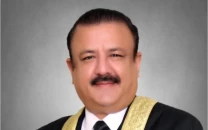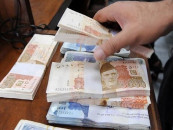A nation in denial
Pakistan’s failure to evolve as a stable and civilised society relates to some fundamental contradictions.

Those issues are as follows: Pakistan was founded by a great leader, with the rare historic distinction of creating a new country, who drank scotch and wore modern English suits. He was an exceptionally principled and honest man driven by a desire to secure the interests of Muslims in the post-British India but was not a religious person at all. He married a non-Muslim woman, and selected a distinguished lawyer – an Ahmadi – as Pakistan’s foreign minister. Both he and Iqbal as leaders felt very strongly about the political and economic rights of the Muslim minority in united India but never envisioned Pakistan to be a theocracy or an orthodox society.
After independence, the Muslim League came to be dominated by a feudal aristocracy that contributed little to the Pakistan movement. It was full of opportunists who jumped on the Muslim League bandwagon and had no vision for Pakistan’s future beyond empty rhetoric. In 1945, Sindh was the only Muslim majority province where the Muslim League formed the provincial government.
Pakistan’s founders were responsible for sowing the seeds of a client-state relationship with the US. As head of a newly-born ‘moth-eaten Pakistan’, to use Jinnah’s own words, and with little or no financial resources, he was wrong to seek a military solution to Kashmir with Pakistan completely dependent on Britain for its survival and so desperate that it requested a two-billion dollar loan from America in October 1947, negating the very spirit of independence from colonial rule. The secession of former East Pakistan negated the assumption that religion alone could keep a nation or a country united.
Pakistan’s current constitution does not represent the thinking of its founders. Terms like ‘Islamic Ideology’ and ‘Nazaria-i-Pakistan’ were coined by the Jamaat-i-Islami whose rise was supported by the long standing official policy of the US to encourage religious extremism in the Muslim world to prevent the rise of anti-imperialist nationalist leaders. The Jaamat had close ties with Said Ramadan (de facto head of the Akhwanul Muslimeen or the Muslim Brotherhood and son-in-law of its founder Hassan al Banna) who worked with the CIA as it plotted against Gamal Abdul Nasser. The Jamaat’s chief Mian Tufail Muhammad’s nephew was Ziaul Haq, and both worked to further US interests in Pakistan and the region. The US supported and financed the so-called fundamentalist groups for decades [refer: The Devil’s Game by Robert Dreyfus] and continues to do so because these groups are considered a buffer against the potential threat of Russia and/or China. Pakistanis must probe deeper into history and inside their souls to face some difficult, perhaps harsh facts and problems dating back to 1947. Pakistanis have never faced and resolved these grave historic contradictions. It is time for some deep soul-searching, collective introspection, and recognition that we need to grow up. Pakistanis have the potential to do just fine only if we can come to terms with what was a troubled childhood.
Published in The Express Tribune, July 6th, 2010.


















COMMENTS
Comments are moderated and generally will be posted if they are on-topic and not abusive.
For more information, please see our Comments FAQ